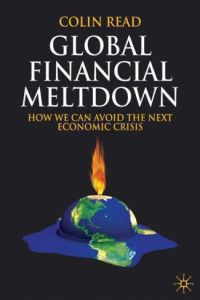
Global Financial Meltdown
How We Can Avoid The Next Economic Crisis
Recommendation
Author Colin Read writes that the purpose of his book is “to provide an economic education for the educated reader who does not have a college major or minor in economics.” The book goes a good distance toward achieving that admirable goal. This broad survey of important economic ideas has a minimum of jargon. As its hopeful subtitle suggests, the book’s major emphasis is how to avoid another global financial crisis. It is especially timely as people all over the world are trying to understand the reasons for the crisis and the roles of the different players. While it seems to have been proofread in haste, getAbstract recommends this readable book to anyone who wants a firmer, basic understanding of economics without having to get a degree in the subject.
Summary
About the Author
Economics and finance professor Colin Read is the dean of the School of Business and Economics at the State University of New York in Plattsburgh. A former research associate at the Harvard Joint Center for Housing Studies, he served at the Ministry of Finance in Indonesia.








Comment on this summary